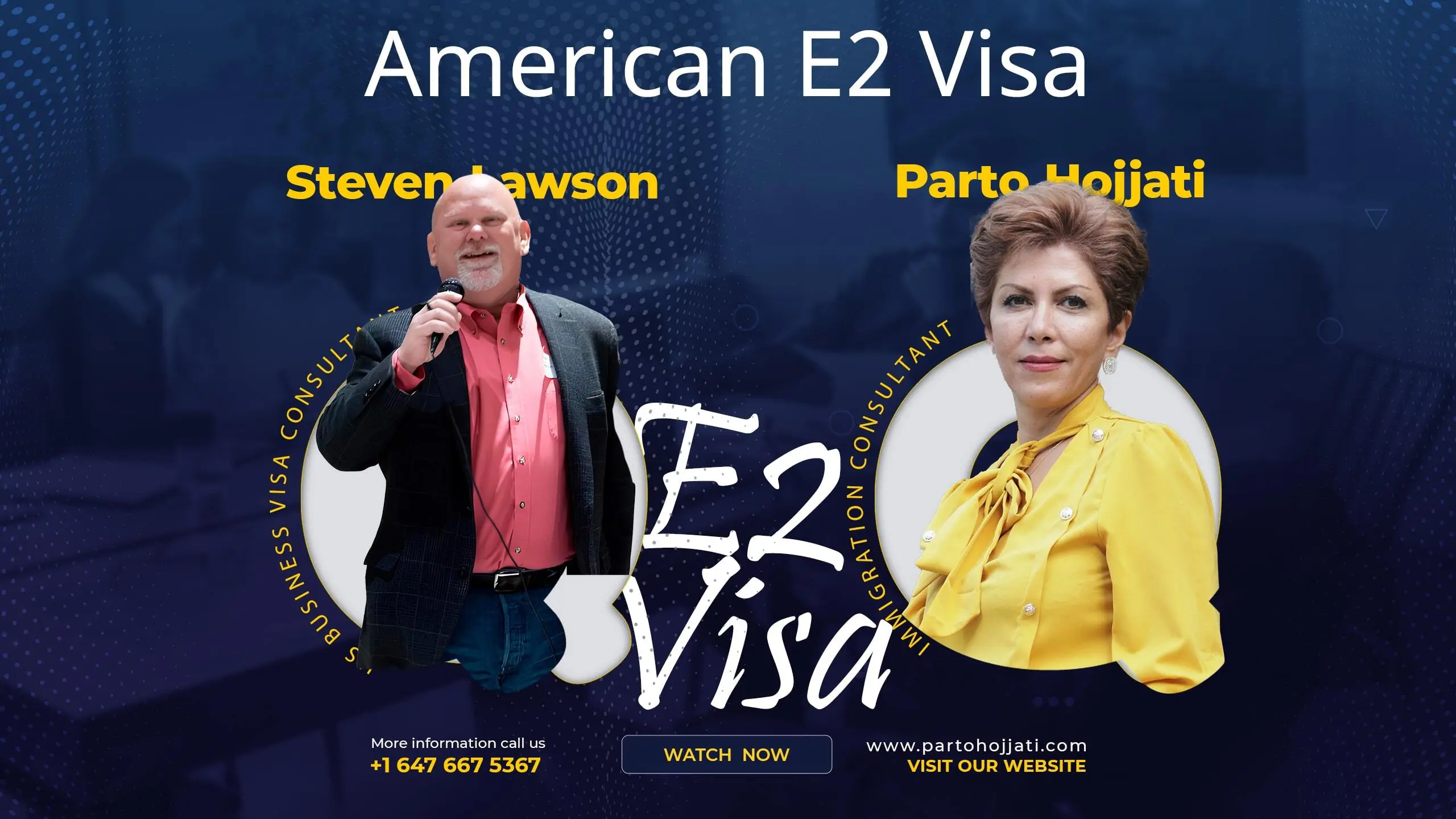Subtotal $0.00
What is the U.S. E-2 Visa?
The E-2 Visa is a non-immigrant visa that allows foreign investors to enter the United States for the purpose of investing in and managing a new or existing business. This visa is specifically available to citizens of countries that maintain a Treaty of Commerce and Navigation with the United States, which includes several countries but requires dual citizenship for Iranians to qualify.
E-2 Visa Requirements
To qualify for the E-2 Visa, applicants must meet certain criteria:
- Substantial Investment:
The investment must be substantial, indicating the investor’s commitment to a business capable of operating successfully in the U.S. Though there is no minimum amount specified, the investment should be enough to support the business’s startup or acquisition. - Ownership and Control:
The applicant must own at least 50% of the enterprise or have a significant level of operational control within the business. - Active and Operational Business:
The business must be actively generating or have the potential to generate income beyond the investor’s living expenses and should not exist solely to provide personal financial support. - Nationality Requirement:
Only nationals of countries with an active E-2 treaty with the U.S. are eligible. Investors from Iran can apply if they have dual citizenship with a treaty nation.
You Want Know About E-1 Visa?! Click Here
Benefits of the E-2 Visa
The E-2 Visa offers numerous advantages for qualified investors:
- Work and Management Authorization:
Investors can legally work as the primary manager or executive of their business in the U.S. - Family Accompaniment:
Spouses and children under 21 years old can accompany the E-2 Visa holder. The spouse can also apply for work authorization in the United States. - Renewable Visa:
The E-2 Visa is renewable every two years, without a maximum limit on the number of extensions, as long as the business remains viable and the visa requirements are continuously met.
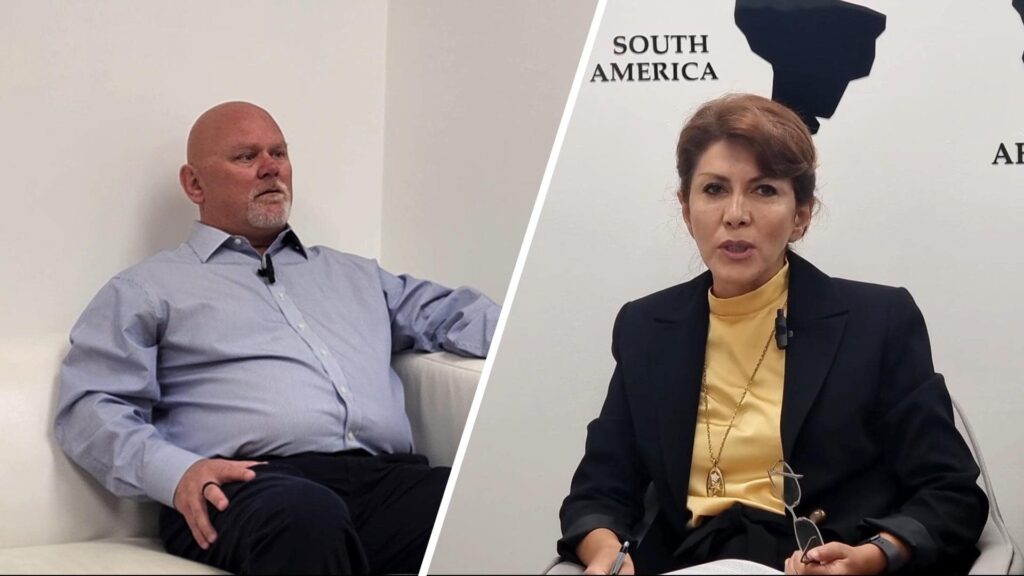
Limitations of the E-2 Visa
- Temporary Status:
The E-2 Visa is a non-immigrant visa, meaning it does not directly lead to permanent residency. It remains valid as long as the business remains active and profitable. - Substantial Financial Commitment:
For many, the required investment amount might be substantial and varies depending on the type of business. - Treaty-Based Eligibility:
Only nationals of treaty countries are eligible, meaning that some individuals may need to obtain citizenship in a treaty country first.
How to Apply for the E-2 Visa
- Document Preparation:
Gather all necessary documents, including proof of financial investment, ownership, and business viability. - Visa Application through a U.S. Embassy or Consulate:
Applicants outside the U.S. must apply for the E-2 Visa through a U.S. Embassy or Consulate in their country. Those already in the U.S. may apply for a change of status. - Interview and Review:
The process includes an in-person interview where applicants provide documentation to support their application.
Is the E-2 Visa Right for You?
For individuals interested in entrepreneurial opportunities in the United States, the E-2 Visa is a valuable option, providing a pathway to establish and manage a business in the U.S. without requiring permanent residency. This visa is ideal for those who wish to work, invest, and build business ties in the U.S.
The text of the interview
Parto Hojjati:
Hello again. This is our second session with Stephen Lawson, a U.S. business consultant. In our first meeting, we discussed about E-1 visa, which is a non-immigrant visa.
And in our today meeting, we will discuss about E-2, another kind of visa for U.S., for those who are interested in establishing a business in U.S. Stephen will actually explain more detail about this program, who is eligible, who can apply, how we can apply for this program, and all the other details. So let’s start with Stephen to introduce himself.
Steven Lawson:
Thank you, Parto, My name is Stephen Lawson. I’m the founder and CEO of Losorio Consulting, which is a U.S. business immigration firm. And I’m here to talk about the E-2 visa today.
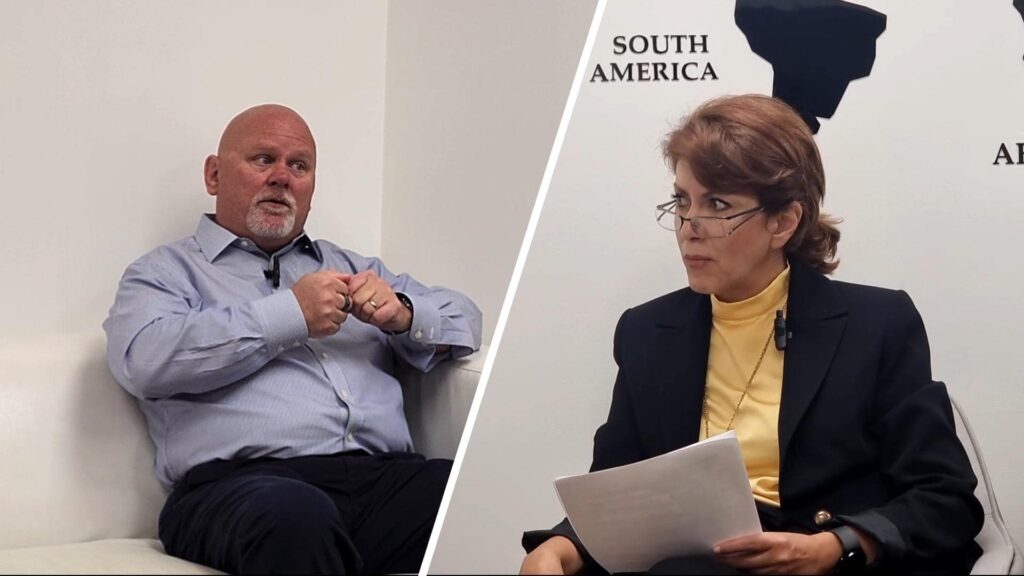
Parto Hojjati:
Thank you for accepting our, actually, our invitation for being here today, Stephen.
Steven Lawson:
My pleasure.
Parto Hojjati:
The first meeting we discussed about E-1 visa, who is eligible, how they can apply, and all these things. And today we’re going to explore about E-2 visa. And let’s start with what is E-2?
Steven Lawson:
Okay. So the E-2 visa is a non-immigrant visa. And there are some similarities to the E-1, but the E-2 is by far the more popular of the two.
Between E-2 and E-1, there’s probably about 85 to 90% of the applications are actually for E-2 visas. So I used to work at the U.S. consulate in Toronto, where I was an analyst. I analyzed thousands of these applications.
And for the E-2 visa, just like the E-1 visa, you have to demonstrate that you are a citizen of a country that has a treaty of trade and investment with the United States. So there’s actually a list you can look at. I have it on my website.
And for example, Canada has the USMCA, the treaty between the United States and Canada. So Canada qualifies. And so does about 180 other countries.
So the E-2 visa requires investment in the United States, and that investment can range depending on the actual type of business. And the business has to be real and operating before you actually apply for the visa.
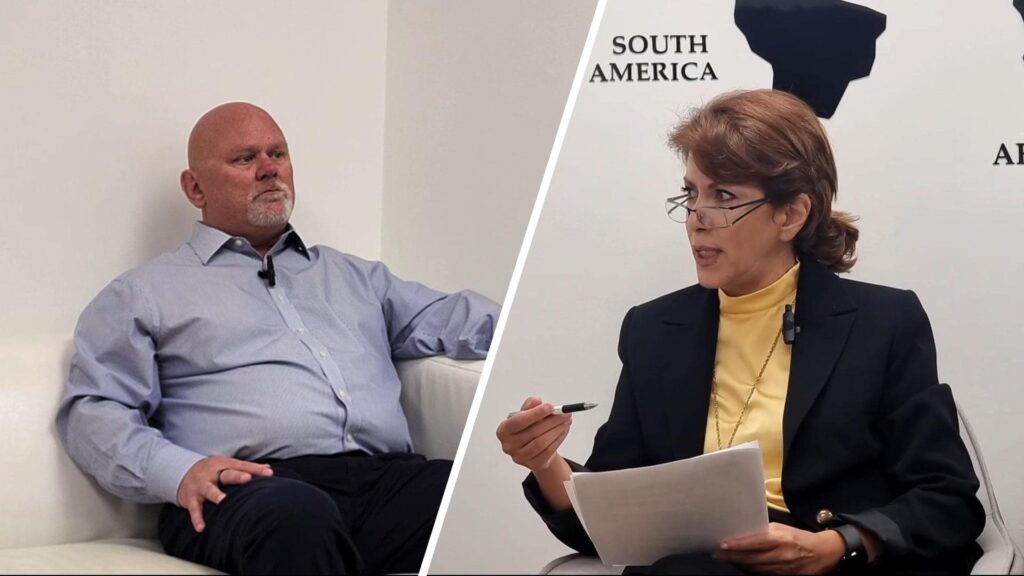
Parto Hojjati:
So before continuing, I have a question. For those who are in Canada, but they are PR holder, are they eligible for E-2 or E-1, or they have to be a citizen?
Steven Lawson:
Well, it depends. Again, so if you’re from another country and you’re a PR holder here in Canada, it would depend on whether the country you’re a citizen of has the trade treaty. So let’s say, for example, you have somebody from France who’s here living in Canada and is a permanent resident.
The permanent resident in Canada wouldn’t qualify under the Canadian treaty, but the France treaty would be something we would look at. And as a citizen of France, there was a trade treaty, and that would have to apply through that citizenship.
Parto Hojjati:
Oh, okay. So what I get from your explanation is that for E-2 visa, the applicant should register a business in US. Am I right?
Steven Lawson:
Yes, exactly. So the process is, and I got my clients through the whole process. First, you have to figure out what type of business that you want to have, where you want to have it.
It could be a business you purchase. It could be a business you start up from scratch. It could be a franchise.
So there’s lots of different ways you can do it. The E-2 visa is very versatile in that aspect. Find a location.
And then I always recommend that you set up an LLC or a corporation just as a matter of protecting your personal assets. There’s legal things that really make it a beneficial way to do it. And then you need to start investing.
So if you’re, let’s say, for example, you’re setting up a flower shop, then there’s certain things you need. You need to have refrigerated space, and you need to have a physical location, and you need to have displays, and you need to have advertising, and probably a website. And once you get everything you need to where you could literally open the door and start selling flowers, then that’s when you apply for the visa.
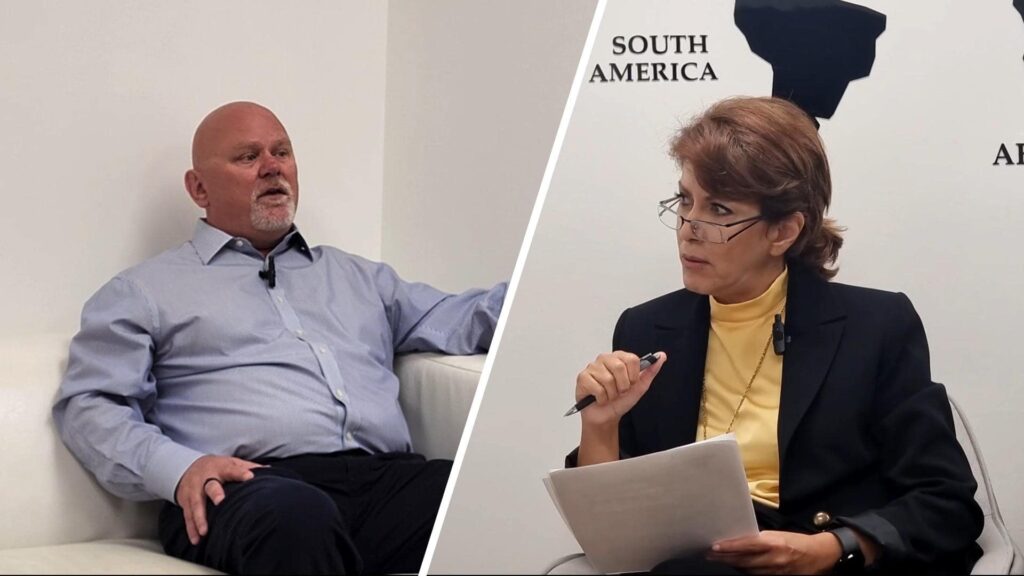
Parto Hojjati:
So for this kind of business, does it have to do anything with the applicant background? I mean, if someone is working as a welding company here, does he have to establish exactly the same business in the U.S., or it could be any kind of business?
Steven Lawson:
That’s a really good question, Pato. It doesn’t have to be the exact same business. In matter of fact, it doesn’t have to be a business you even have experience in.
Many people that have the entrepreneurial spirit and the experience with setting up businesses and running businesses can do various types of businesses. So most of my clients that I have are people that have successful businesses here in Canada that are setting up a business in the United States doing the same thing, just as a way of expanding their revenue. In some cases, it’s people that are selling their houses, and they’re buying, let’s say, a pizza parlor, right?
They don’t have really much experience in pizza parlor. But when you buy a business, you get that training. Maybe you have some experience in sales.
Maybe you have some experience in the restaurant industry at some point. So you need to show that you have some sort of set of skills and education that allow you to run the business. You don’t have to be making the pizzas, for example, if you own a pizza shop.
Well, you have to be able to know the business, yes, and have a vision on how to direct and manage the business.
Parto Hojjati:
Perfect. And you said that it could be establishing a business from scratch or purchasing a running business. Does it mean that there is any specific minimum investment requirement?
Steven Lawson:
That’s a very good question. I get asked that question more than any other question when it comes to E2. How much do I need?
What do I need to do? And there’s not a straightforward answer to that question. Some people tell me, what if I just buy a truck?
Well, okay, so if you own a truck, how are you going to run a business with just the truck? You need to have something else, right? Some tools.
Maybe you’re in the construction industry. So it really depends on your particular business. For example, IT.
IT is one of those businesses where you don’t need a lot of stuff, a laptop, a desk, internet connection, maybe some subscriptions to some software that helps you do things, and some marketing. So IT businesses are typically on the lower end, in the $30,000 to $50,000 range. If you’re opening a business, for example, where you’re making car parts, it may be required $10, $20, $30 million.
So part of my job is to make sure that you have all the things that you need to run that business, and that we can adequately explain that to the person that’s going to interview you when you go to your visa interview, so that they understand that for this business, this amount of money is what I need to get it started.
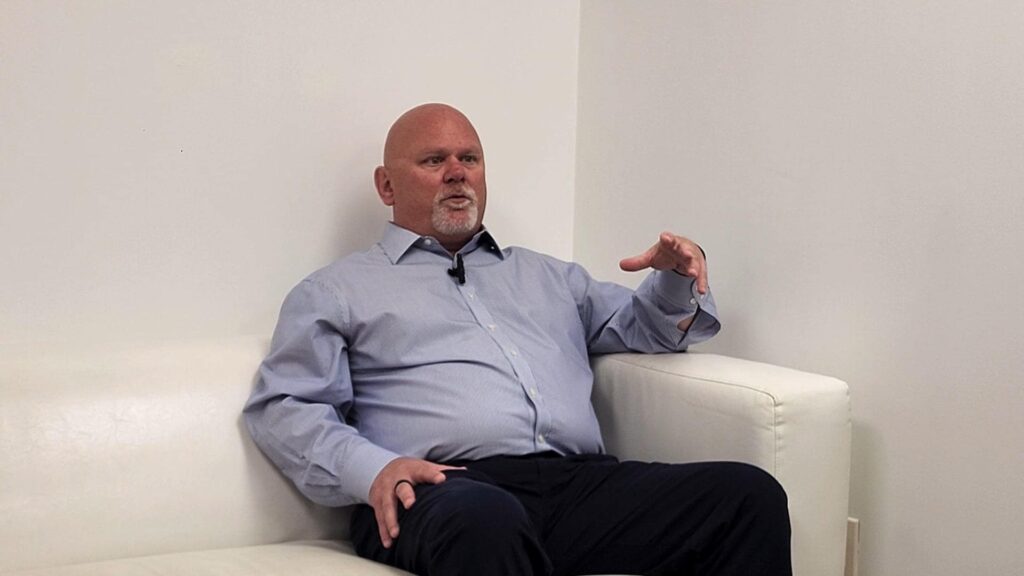
Parto Hojjati:
I got it. And for sure, they should show some kind of proof of source of funds, yes?
Steven Lawson:
Absolutely. Source of funds is part of the application. That can be done in several different ways.
Sometimes people sell their house. Sometimes people sell their business. Sometimes people take out mortgage, second mortgages.
If you’ve been with the same bank for a long time, and you’ve accumulated a large amount of savings, you can go to the bank and ask for a letter from the manager, and I can provide you with the template to my clients, so they can have evidence. Something that says this money they’re using for this particular venture came from employment earnings, business earnings. Sometimes we use the schedule 100 and 125 from their immediate business to show they have a viable operating business that’s making money, and that’s where the money came from.
Parto Hojjati:
And do they need to, when they apply for this E-2 visa, the applicant should already have established the business in U.S. I mean, the business should be in running phase, or they can say that they will do it later when they have the visa.
Steven Lawson:
So the U.S. government uses the phrase real and operating. So real and operating means it has to be ready to start operating, or in the immediate future, start operating. So think of it like this.
I’m here at your business, right? So if you come in the door, you have everything you need right now to run your business. So I would say if you wanted to take this business and put it in the United States, you would need the same setup, all the things that you have here somewhere in the United States, so that you could open that door and just start working.
And that’s where you want to be when you apply for the visa. Oh, I got it. Okay.
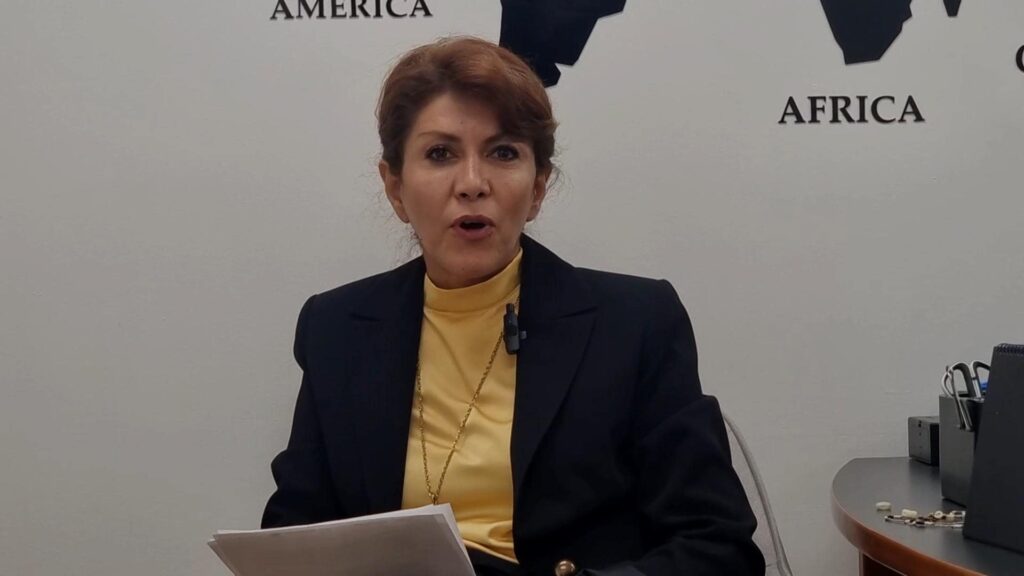
Parto Hojjati:
And then is it a kind of green card visa, or I mean, does it have any direct path to the green card or not?
Steven Lawson:
There’s not a direct path to U.S. citizenship or green card, although sometimes clients can qualify from different avenues. So for example, I’m working with some clients that have advanced degrees and many years of experience in whatever particular industry they’re in. And there are ways that they can use that to eventually get a green card.
Sometimes that’s something you can do right away. It takes quite a bit of time for processing. So usually being on an E-2 visa, working on a business, getting it operating, and then you can apply for this other type of visa that brings you to a green card in some cases, not at all cases.
Okay. But there are other avenues that they may or may not qualify for.
Parto Hojjati:
Got it. And how long is the visa valid for?
Steven Lawson:
The U-2 visas are valid based on the citizenship of the visa holder, the primary applicant, actually. For Canada, it’s five years. There are some countries where it’s only like, I think Egypt, for example, is fully good for three months.
And there are some countries that simply just don’t qualify for the visa. But for most countries, European countries, Asian countries, Canada, it’s good for five years.
Parto Hojjati:
And when they want to renew it, they have to, I mean, they make any commitment that they hire any U.S. citizen to renew their visa, or there’s no such requirement?
Steven Lawson:
Yeah. There’s something called marginality, and you can show marginality in two different ways. One of them is by providing more than just a living, and one is by significant economic impact.
So there’s no direct requirement for hiring U.S. citizens. You certainly can. You could also hire citizens of the same country that the primary investor is.
So for example, if we have a Canadian who is on the U-2 visa and owns that company, they could hire Canadian citizens to come down for employees to work there, or U.S. permanent residents or citizens. As far as being required when it comes time to renew, you have to show that the business is still functioning and that it is generating some sort of revenue. Even if you didn’t meet your projections on the initial application, you know, you just need to show that there’s actually still a functioning business and bringing in more than just a living.
Parto Hojjati:
Oh, so the applicant needs to have a business plan when applying for this visa?
Steven Lawson:
It’s highly recommended for the initial application. It really is. It is one of the things that’s mentioned in the regulations, and you should have a business plan with five-year financial projections.
So if you don’t do it, you’re going to kind of stand out as the person that didn’t do it because everyone does it. I work with somebody who does a really, really good job with business plans for people applying for this type of visa.
Parto Hojjati:
Oh, perfect. And what about the family members? Is it like E-1?
I mean, the spouse will get open world permit and children can have a visitor visa?
Steven Lawson:
Absolutely. So just like with E-1, the spouse, and again, the spouse and the children, it doesn’t matter what their citizenship is. So it’s all based on the principal applicant.
Parto Hojjati:
Okay.
Steven Lawson:
So even if the spouse is from a country that doesn’t have a U-2 trade treaty, if the principal applicant has their visa, they can qualify for the U-2 visa. And the spouse would have a open work permit, and the children under the age of 21 would have permits that would allow them to go to school, and even in some cases like work a few hours a week, like a third high school or something like that.
Parto Hojjati:
Really? That’s good. Is it possible to have a home business under E-2?
Steven Lawson:
It is. It is. Especially coming out of COVID, there’s a lot of people, professionals that work mainly from their residence.
I’m one of those people. It is a little bit more difficult. It’s a little bit trickier, but it really depends on what it is you’re doing.
If you’re a service provider, like for example, myself or an IT person, it’s not unusual to work out of your house. So it definitely is something you could do, yes.
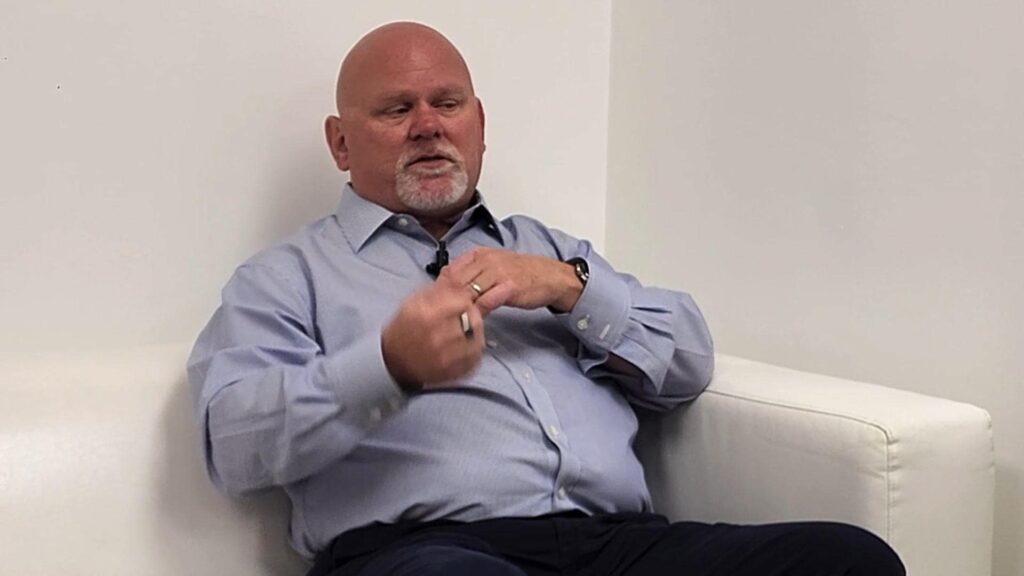
Parto Hojjati:
Okay, perfect. And can you tell me a common mistake that usually applicants for E-2 make?
Steven Lawson:
That’s a really good question. A common mistake, I would say that one of the things that I see happen is it comes when it comes to real and operating. So I think there’s a lot of confusion with the real and operating aspect of it.
I think sometimes people think they can open up a LLC in wherever state they want to go to, let’s say Florida, and apply for a visa, but that’s not the case. You have to have everything ready to go and ready to open the door. Another one is that people will take large, like $200,000 and put it in a bank account in the United States and say, you know, oh, I have a business LLC, and in the bank account there’s $200,000.
I just invested $200,000. That doesn’t work. The money has to be real, has to be at risk and irrevocably committed.
You can’t just put it in a bank account and say that’s an investment.
Parto Hojjati:
So what kind of investment is acceptable to prove that the applicant is eligible for E-2, for example, paying for the rent or purchasing equipment or office stuff, something like this? Are they being considered as part of investment for E-2?
Steven Lawson:
Yeah, it is. Exactly. I sometimes recommend my clients pay more than just the first month’s rent, especially if I think they’re going to, they need a little bit, they need to raise their investment a little bit.
In some cases, they pay for an entire year up front. Some cases they pay for three months or six months. Any equipment that you need for your business would count.
So invoices for, let’s say you have an ice cream shop, right? You need to buy ice cream machines and need to buy scoops and you need to, you know, like buy maybe a delivery vehicle or, you know, cell phone, laptops, anything you’re using for your business would count as investment in that business. And, you know, some businesses are kind of unique in some cases, things like, you know, cameras and things you don’t normally think of as being part of a business operation actually would qualify.
Parto Hojjati:
And you said that it could be even a franchise business, am I right?
Steven Lawson:
Yes.
Parto Hojjati:
So if the applicant is making investment for a franchise and for any reason, I don’t know what, for any reason, the application for eTool is being refused, rejected. So what happens to the investment that the applicant has made for the franchise?
Steven Lawson:
That’s a good question too. So they can still have the business, they can still run the business, they just can’t do it themselves. So at that point, they would have to either make a decision, do I want to be a passive investor and just staying, you know, when I’m here in my country, Canada, for example, to hire a manager and hire employees to run everything and just enjoy the profits.
That would be one thing they could do or they could sell it. But unfortunately, this particular visa requires you to invest the money and spend the money before you apply. So when I meet with clients, I do a very, very thorough job of vetting them, of interviewing them, asking about their immigration history, asking them about their criminal background, asking them about anything that could possibly be an obstacle to them personally getting admitted before I take a case.
Because what I don’t want to do is have somebody set up a business and spend a bunch of money and then wind up not getting their visa.
Parto Hojjati:
Perfect. And what is the processing time for this visa?
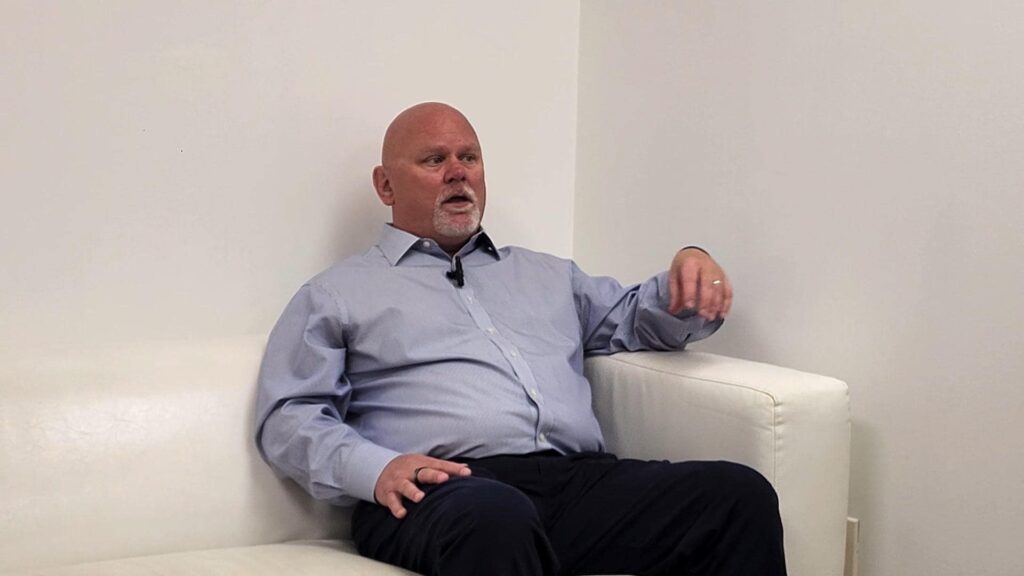
Steven Lawson:
Well, once the business is fully set up and once I have all the documents I need, I need about a week or so to get everything put together. I encourage my clients to send me stuff as they get it so I can kind of organize things ahead of time. The application itself is sent in via email for Toronto and for most other embassies and consulates, London, and I’m working with somebody in Bogota.
They all get sent in either, I think in Bogota, you have to physically hand the actual application the week before your interview. But for here in Toronto, it takes about two weeks for the application to get evaluated by one of the analysts, which is what I used to do. And then they send you an email saying to schedule an appointment.
Currently, appointments are usually available about a month or so out. So once it gets submitted at the current time, you can probably have an interview between a month and six weeks.
Parto Hojjati:
Oh, that’s so fast.
Steven Lawson:
Yeah.
Parto Hojjati:
Oh, okay. I think I’m done with my questions about E2. Is there anything that you want to add to this?
Steven Lawson:
The only other thing I would add is, you know, there are some fees involved. There is a form called a DS-160 that everybody has to file, including the children and the spouse, and that’s $315 US dollars for each one that goes to the US government. And in some cases, depending on your nationality, you may have to pay a reciprocity fee for each one of these visas.
Once the visa is issued, Canada currently doesn’t have one. It used to be $40. UK doesn’t have one, but it used to be $105.
Australia, for example, used to be $105. Now it’s $5,542 per person. And their visas are good for four years.
So every four years, if you have a spouse and two children, that’s $22,000 you got to pay each every four years. So, you know, that is something you want to make sure that I always ask my clients what their nationality is, so I can let them know whether there’s some sort of fee involved that maybe they don’t realize exists.
Parto Hojjati:
That’s good to know about it. Thank you so much, Steven. You’re welcome.
Okay. That’s the end of our today meeting for the E2 visa, which is actually some kind of a business visa for those who are interested in having a business, running a business in the U.S. for a long time, and probably after that, finding a pathway for a green card, for a U.S. green card. If you have any questions, please be in touch with our offices.
Follow us on our social media platforms. We would be happy to help you. Thank you.
Parto Hojjati Website : Click Here
Stevene Lawson Website : Click Here

